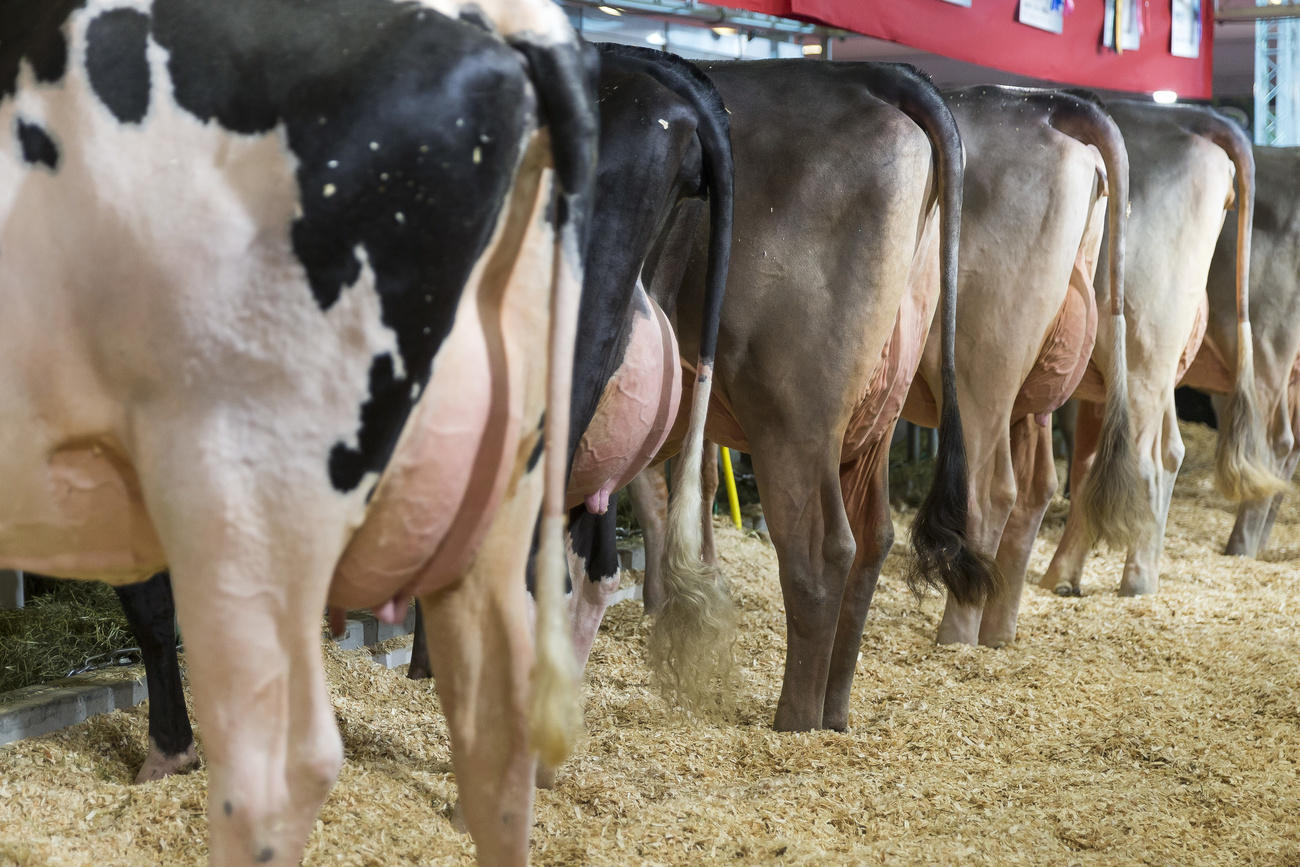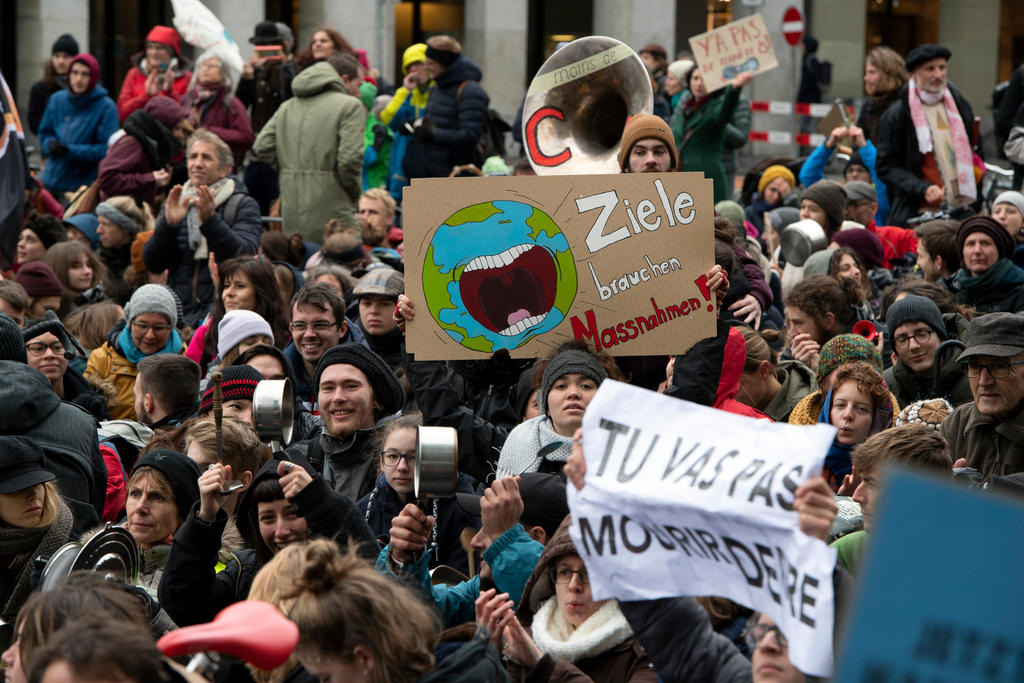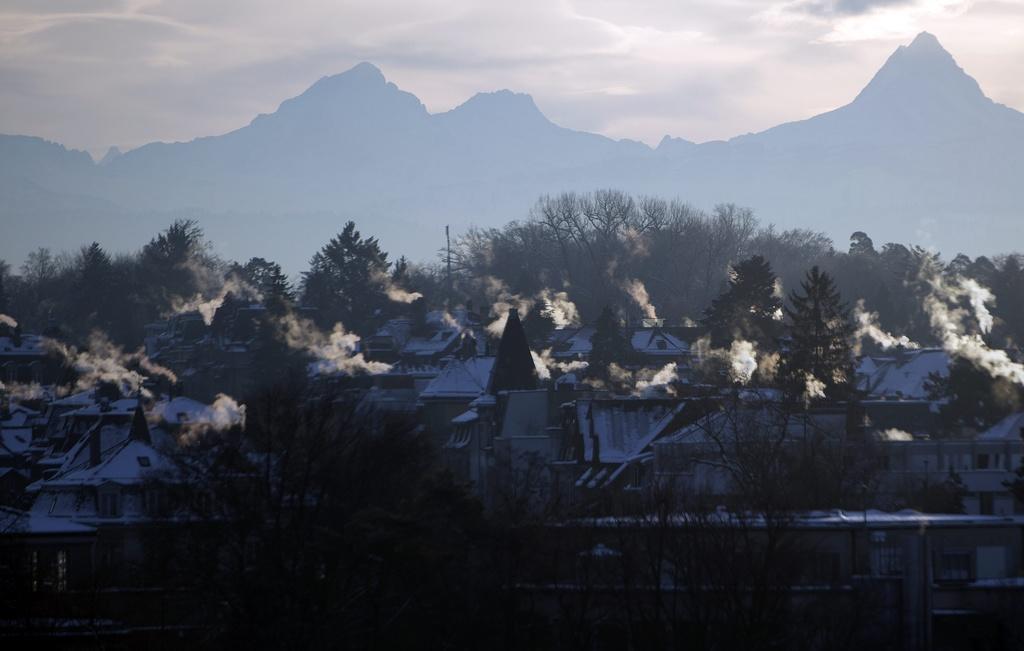Switzerland to become climate neutral by 2050, says government

Switzerland should become climate neutral by 2050, the Swiss government has declared. It has tightened its target based on new scientific findings published by the Intergovernmental Panel on Climate Change (IPCC).
“Switzerland plans to reduce its net carbon emissions to zero by 2050, thus meeting the internationally agreed target of limiting global warming to a maximum of 1.5°C when compared with the pre-industrial era,” the government said in a statementExternal link.
“We must curb our greenhouse gas emissions more powerfully and more quickly – that’s in Switzerland’s own best interests,” said Environment Minister Simonetta Sommaruga on Wednesday. “What’s more, as an innovative country, Switzerland has the best conditions to achieve the target.”
By signing the Paris Agreement in 2016, the government said it had signalled its long-term aim of reducing Switzerland’s carbon emissions by 70-85% by 2050. This target was based on IPCC findings that global warming would have to be reduced by 2100 to less than 2°C in order to avoid serious consequences for humankind and biodiversity.
In 2018, the IPCC reportedExternal link that global warming of 1.5°C could also lead to serious changes in ecosystems and that a net emission balance of zero would have to be achieved considerably sooner.
Courses of action
“In response, the government instructed the Federal Office for the Environment to review the long-term climate targets and to devise potential courses of action,” the statement said.
“In addition, on June 26 the government, in its discussion of Switzerland’s priorities for the UN General Assembly in 2019, decided that Switzerland would increase its target for the emission reductions to be achieved by 2050.”
Other countries including Britain, France and Sweden have already enshrined the goal into law, while Germany is expected to do so this year.
“Switzerland is especially affected by climate change, as temperatures here are rising twice as quickly as the global average,” the government said.
2050 climate strategy
In Switzerland, CO2 emissions from transport, buildings and industry can be reduced by up to 95% by 2050 through technologies that are already available and by using renewable energy sources, the government saidExternal link on Wednesday.
“There is also potential for reducing greenhouse gases, particularly the methane and nitrous oxide produced by agriculture. In addition, the reduction of emissions produced in other countries will form part of the strategy,” it said.
“Alongside natural CO2 sinks (such as forests and the soil), technologies that permanently remove greenhouse gases from the atmosphere and store them are to be used in future to offset the remaining emissions. Swiss industry and research is playing an important role in the development of these emission technologies.”

More
‘Climate alarm’ aims to wake up politicians

In compliance with the JTI standards
More: SWI swissinfo.ch certified by the Journalism Trust Initiative






You can find an overview of ongoing debates with our journalists here. Please join us!
If you want to start a conversation about a topic raised in this article or want to report factual errors, email us at english@swissinfo.ch.